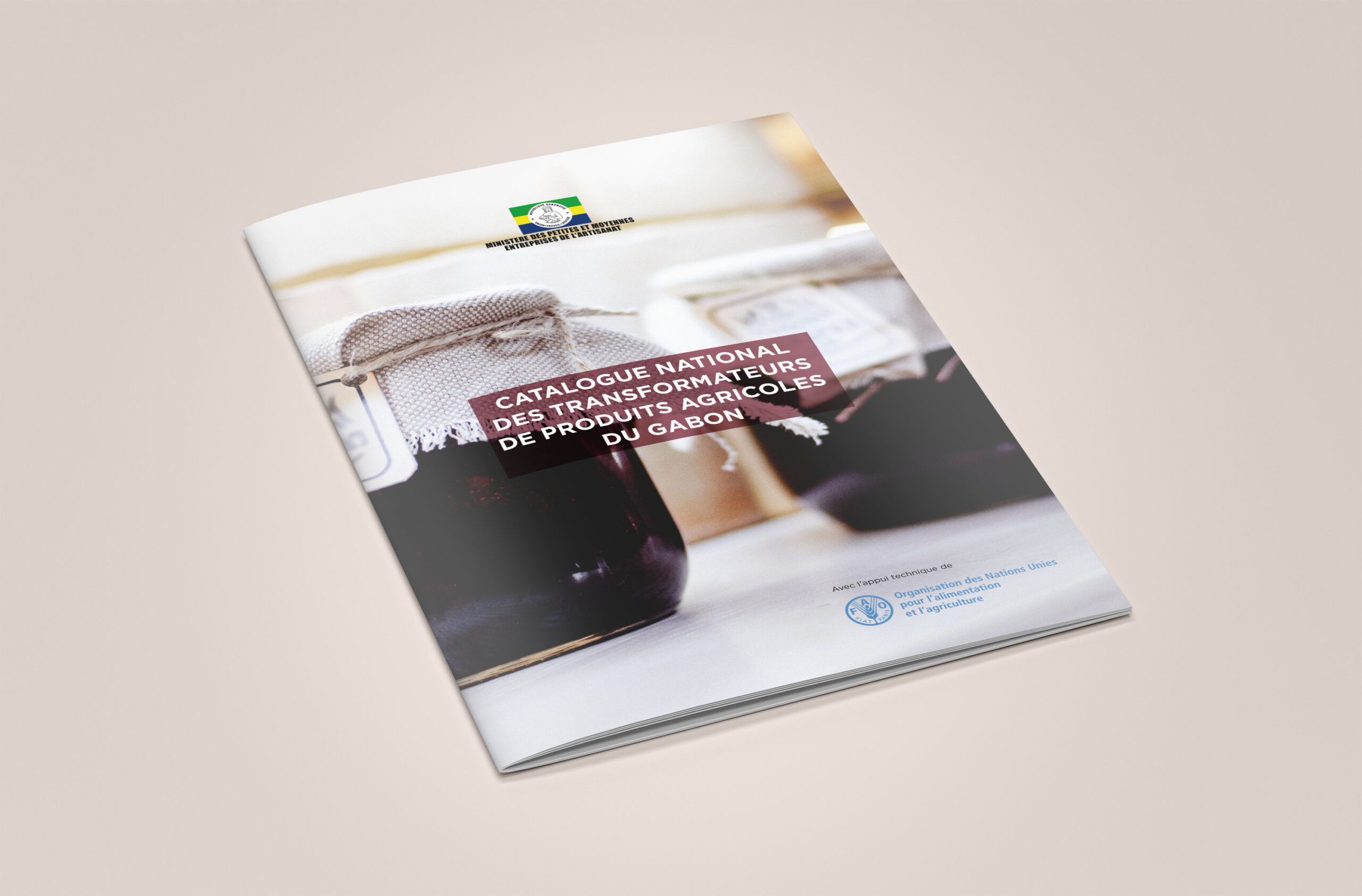Food and Agriculture Organization of the United Nations (FAO), 2018



Context
As part of the implementation of the project GCP/SFC/001/MUL titled “Enhanced Food Security in Urban Areas of Central Africa through Better Availability of Locally Produced Food,” various efforts were made to enhance the technical, organizational, and material capacities of agricultural producers in six beneficiary countries, including Gabon. The project aimed to increase agricultural production and contribute to food security in the region.
Despite the technical support leading to improved yields, evaluations revealed that a significant portion of this production was being lost due to weak post-harvest handling systems. In developing countries, approximately 40% of food production is lost, primarily because of the perishable nature of horticultural products and the lack of adequate post-harvest processing solutions. As a result, most of these products are sold fresh with little added value, despite the potential to increase their value through processing.
In Gabon, the horticultural sector is underdeveloped, and the country relies heavily on food imports to meet its needs. However, some actors have started to engage in agricultural product transformation despite numerous challenges. The Subregional Office of the FAO for Central Africa sought to strengthen these actors’ capacities to reduce post-harvest losses and promote the “Made in Gabon” brand by developing a market for locally processed products that meet sanitary and nutritional quality standards.
Objectives
The primary objectives of this initiative were:
- To reduce post-harvest losses by enhancing the technical and organizational capacities of agricultural product processors in Gabon.
- To promote local agricultural transformation and encourage the consumption of “Made in Gabon” products.
- To create a National Catalog of Agricultural Product Processors to help identify key players in the sector, showcase their products, and establish a platform to connect them with potential markets and partners.
Solution
To achieve these objectives, a series of actions were identified and implemented in collaboration with the Federation of Agricultural Product Processors of Gabon (FENATAG). Key initiatives included:
- Capacity Building: Organizing training sessions for processors to improve their technical skills in product transformation.
- Expert Consultation: Recruiting consultants to analyze the value chains of agricultural products and assess food safety aspects in the processing industry.
- Network Structuring: Supporting the development of a national network of agricultural product processors and establishing a platform for stakeholders in the horticultural sector.
- Promotion of Local Products: Creating opportunities for local processors to market their transformed products through the establishment of dedicated spaces for commercial exchange.
- Study Tour: Organizing study tours for Gabonese processors to visit countries with advanced local agricultural product transformation practices.
- Catalog Development: Collecting data from relevant ministries and stakeholders to create the first edition of the National Catalog of Agricultural Product Processors in Gabon.
Results
The project yielded several positive outcomes:
- Enhanced Technical Skills: Agricultural processors received specialized training, improving their technical know-how in product transformation, which directly contributed to a reduction in post-harvest losses.
- Improved Market Connectivity: The creation of the National Catalog of Agricultural Product Processors helped promote local processors by showcasing their products and connecting them with potential buyers and partners. This catalog became a key tool in strengthening the capacities of FENATAG and fostering the development of Gabon’s agricultural transformation sector.
- Increased Awareness and Consumption: By promoting locally processed products, the initiative helped raise awareness among consumers about the benefits of purchasing and consuming “Made in Gabon” products, further supporting local economic development and reducing reliance on imported food products.
- Structured Industry Support: The establishment of a national network and a horticultural platform created a more organized environment for processors, providing them with better access to resources, markets, and partnerships.
This case study demonstrates the importance of capacity-building initiatives in reducing food losses and strengthening local food systems. Through targeted interventions and the promotion of local agricultural transformation, Gabon has made strides towards improving food security, economic development, and the sustainability of its agricultural sector.


